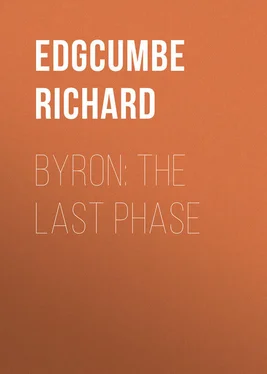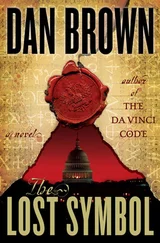Richard Edgcumbe - Byron - The Last Phase
Здесь есть возможность читать онлайн «Richard Edgcumbe - Byron - The Last Phase» — ознакомительный отрывок электронной книги совершенно бесплатно, а после прочтения отрывка купить полную версию. В некоторых случаях можно слушать аудио, скачать через торрент в формате fb2 и присутствует краткое содержание. Жанр: literature_19, Поэзия, foreign_antique, foreign_prose, foreign_poetry, Биографии и Мемуары, на английском языке. Описание произведения, (предисловие) а так же отзывы посетителей доступны на портале библиотеки ЛибКат.
- Название:Byron: The Last Phase
- Автор:
- Жанр:
- Год:неизвестен
- ISBN:нет данных
- Рейтинг книги:3 / 5. Голосов: 1
-
Избранное:Добавить в избранное
- Отзывы:
-
Ваша оценка:
- 60
- 1
- 2
- 3
- 4
- 5
Byron: The Last Phase: краткое содержание, описание и аннотация
Предлагаем к чтению аннотацию, описание, краткое содержание или предисловие (зависит от того, что написал сам автор книги «Byron: The Last Phase»). Если вы не нашли необходимую информацию о книге — напишите в комментариях, мы постараемся отыскать её.
Byron: The Last Phase — читать онлайн ознакомительный отрывок
Ниже представлен текст книги, разбитый по страницам. Система сохранения места последней прочитанной страницы, позволяет с удобством читать онлайн бесплатно книгу «Byron: The Last Phase», без необходимости каждый раз заново искать на чём Вы остановились. Поставьте закладку, и сможете в любой момент перейти на страницу, на которой закончили чтение.
Интервал:
Закладка:
In December, 1822, Trelawny laid up Byron’s yacht, The Bolivar , paid off the crew, and started on horseback for Rome. The Bolivar was eventually sold by Byron to Lord Blessington for 400 guineas. Four or five years after Byron’s death this excellent little sea-boat, with Captain Roberts (who planned her for Byron) on board, struck on the iron-bound coast of the Adriatic and foundered. Not a plank of her was saved.
‘Never,’ said Captain Roberts in narrating the circumstance many years afterwards, ‘was there a better sea-boat, or one that made less lee-way than the dear little Bolivar , but she could not walk in the wind’s eye. I dared not venture to put her about in that gale for fear of getting into the trough of the sea and being swamped. To take in sail was impossible, so all we had left for it was to luff her up in the lulls, and trust to Providence for the rest. Night came on dark and cold, for it was November, and as the sea boiled and foamed in her wake, it shone through the pitchy darkness with a phosphoric efflorescence. The last thing I heard was my companion’s exclamation, “Breakers ahead!” and almost at the same instant The Bolivar struck: the crash was awful; a watery column fell upon her bodily like an avalanche, and all that I remember was, that I was struggling with the waves. I am a strong swimmer, and have often contested with Byron in his own element, so after battling long with the billows, covered with bruises, and more dead than alive, I succeeded in scrambling up the rocks, and found myself in the evergreen pine-forest of Ravenna, some miles from any house. But at last I sheltered myself in a forester’s hut. Death and I had a hard struggle that bout.’ 8 8 ‘The Angler in Wales,’ by Thomas Medwin, vol. ii., pp. 144-146.
On April 1, 1823, Lord and Lady Blessington called on Byron at the Casa Saluzzo. Lady Blessington assures us that, in speaking of his wife, Byron declared that he was totally unconscious of the cause of her leaving him. He said that he left no means untried to effect a reconciliation, and added with bitterness: ‘A day will arrive when I shall be avenged. I feel that I shall not live long, and when the grave has closed over me, what must she feel!’
In speaking of his sister, Byron always spoke with strong affection, and said that she was the most faultless person he had ever known, and that she was his only source of consolation in his troubles during the separation business.
‘Byron,’ says Lady Blessington, ‘has remarkable penetration in discovering the characters of those around him, and piques himself on it. He also thinks that he has fathomed the recesses of his own mind; but he is mistaken. With much that is little (which he suspects) in his character, there is much that is great that he does not give himself credit for. His first impulses are always good, but his temper, which is impatient, prevents his acting on the cool dictates of reason. He mistakes temper for character, and takes the ebullitions of the first for the indications of the nature of the second.’
Lady Blessington seems to have made a most searching examination of Byron’s character, and very little escaped her vigilance during the two months of their intimate intercourse. She tells us that Byron talked for effect, and liked to excite astonishment. It was difficult to know when he was serious, or when he was merely ‘bamming’ his aquaintances. He admitted that he liked to hoax people, in order that they might give contradictory accounts of him and of his opinions. He spoke very highly of Countess Guiccioli, whom he had passionately loved and deeply respected. Lady Blessington says: ‘In his praises of Madame Guiccioli it is quite evident that he is sincere.’
Byron confessed that he was not happy, but admitted that it was his own fault, as the Countess Guiccioli, the only object of his love, had all the qualities to render a reasonable being happy. In speaking of Allegra, Byron said that while she lived her existence never seemed necessary to his happiness; but no sooner did he lose her than it appeared to him as though he could not exist without her. It is noteworthy that, one evening, while Byron was speaking to Lady Blessington at her hotel at Genoa, he pointed out to her a boat at anchor in the harbour, and said: ‘That is the boat in which my friend Shelley went down – the sight of it makes me ill. You should have known Shelley to feel how much I must regret him. He was the most gentle, most amiable, and least worldly-minded person I ever met; full of delicacy, disinterested beyond all other men, and possessing a degree of genius, joined to a simplicity, as rare as it is admirable. He had formed to himself a beau-idéal of all that is fine, high-minded, and noble, and he acted up to this ideal even to the very letter. He had a most brilliant imagination, but a total want of worldly wisdom. I have seen nothing like him, and never shall again, I am certain.’
We may, upon the evidence before us, take it for certain that Byron only admired two of his contemporaries – Sir Walter Scott and Shelley. He liked Hobhouse, and they had travelled together without a serious quarrel, which is a proof of friendship; but he felt that Hobhouse undervalued him, and, as Byron had a good deal of the spoiled child about him, he resented the friendly admonitions which, it seems, Hobhouse unsparingly administered whenever they were together. Tom Moore was a ‘croney’ – a man to laugh and sit through the night with – but there was nothing, either in his genius or his conduct, which Byron could fall down and worship, as he seemed capable of doing in the case of Shelley and Scott.
It is evident that Lady Byron occupied his thoughts continually; he constantly mentioned her in conversation, and often spoke of the brief period during which they lived together. He told Lady Blessington that, though not regularly handsome, he liked her looks. He said that when he reflected on the whole tenor of her conduct – the refusing any explanation, never answering his letters, or holding out any hopes that in future years their child might form a bond of union between them – he felt exasperated against her, and vented this feeling in his writings. The mystery of Lady Byron’s silence piqued him and kept alive his interest in her. It was evident to those who knew Byron during the last year of his life that he anxiously desired a reconciliation with her. He seemed to think that, had his pecuniary affairs been in a less ruinous state, his temper would not have been excited as it constantly was, during the brief period of their union, by demands of insolent creditors whom he was unable to satisfy, and who drove him nearly out of his senses, until he lost all command of himself, and so forfeited his wife’s affection. Byron felt himself to blame for such conduct, and bitterly repented of it. But he never could divest himself of the idea that his wife still took a deep interest in him, and said that Ada must always be a bond of union between them, though perchance they were parted for ever.
‘I am sure,’ said Lady Blessington, ‘that if ten individuals undertook the task of describing Byron, no two of the ten would agree in their verdict respecting him, or convey any portrait that resembled the other, and yet the description of each might be correct, according to individual opinion. The truth is, that the chameleon-like character or manner of Byron renders it difficult to portray him; and the pleasure he seems to take in misleading his associates in their estimation of him increases the difficulty of the task.’
On one occasion Byron lifted the veil, and showed his inmost thoughts by words which were carefully noted at the time. He spoke on this occasion from the depth of his heart as follows:
Читать дальшеИнтервал:
Закладка:
Похожие книги на «Byron: The Last Phase»
Представляем Вашему вниманию похожие книги на «Byron: The Last Phase» списком для выбора. Мы отобрали схожую по названию и смыслу литературу в надежде предоставить читателям больше вариантов отыскать новые, интересные, ещё непрочитанные произведения.
Обсуждение, отзывы о книге «Byron: The Last Phase» и просто собственные мнения читателей. Оставьте ваши комментарии, напишите, что Вы думаете о произведении, его смысле или главных героях. Укажите что конкретно понравилось, а что нет, и почему Вы так считаете.












